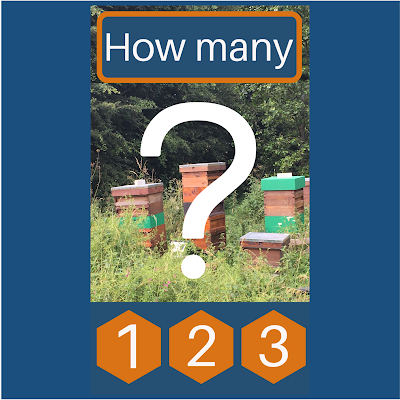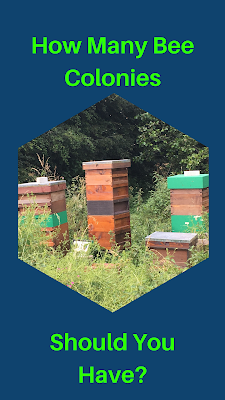How though do you get started?
There are hundreds of books that have been writen on the subject, so this is a great way to learn. They can be expensive though! A good way of mitigating the expence is to join your local association, many have an extensive library from which you can borrow at little or no cost.
Of course most of us now turn to the internet for our information. There you can find videos, articles, how to guides, blogs, research papers and so much more! There are many exellent Youtube channels posted by hobby beekeepers and commercial bee farmers. A note of caution though, you must bee aware that beekeeping is a "local" activity, what works in the southern United States won't necessarally work in Scotland. The climate and resources available have a major influence on the bees, overwintering in climes with extended cold winters requires wrapping hives or moving them indoors, this is totally unnecessary in areas that hive moderate winters. The equipment commonly used (hive format etc) vary from country to country too. Having said that though, if we bear these points in mind we can "translate" ideas or techniques to make them applicable to our own situation.
If we want to actually keep bees, that is manage bees in a hive, altough learning by reading or watching videos is great, there comes a time when we have to roll up our sleeves and dive into a colony of bees (actually I wouldn't recommend rolling up your sleeves). Only then will we know if beekeeping is for us. A strong hive can be more than a little intimidating, especially to a beginner. (See a post on intimidating bees here)
I would recommend that anyone wishing to start out finds a local beekeeper that can show them a working beehive. The best way to do this is to find our local association. Many have demonstration apiaries and run "beginners corner" sessions. If we're not put off then we know that we can go ahead, research the hobby using books, the internet and talking to other beekeepers. We can learn a lot, not least of all is the terminology. Knowing things like what the difference between the big box and the little one is and what they're called is useful. Learning at least the basics makes a big difference in the next step which is to find a mentor before we actually get our bees. This is someone that can have as little as a years experience keeping bees but as such will have infinitely more knowledge than us when we first start out. If we know nothing then their job will be a frustrating one, having to go back to basics explaing the purpose of a super or queen excluder etc.
So having aquired our bees (quite possibly from our mentor) we can really start to learn the skills required to become a beekeeper. We can speed things up a little though, offering to help our mentor carry out inspections, volunteering at our association apiary or helping others with their bees is a great way to spend more time in more hives meeting more bees. We can learn much quicker then than just carrying out one or two inspections a week on our own colony. This way we spend time with other beekeepers, picking up knowledge and tips and making new friends as we go, what a great hobby!
So we've completed our first season and the bees are strong healthy and have plenty of store for the winter, what now? Well we can go back to our books and PC and..... we should but we can also take a BBKA ( I'm sure many countries have similar) module or two. Associations run study groups to prepare for an exam on a number of subjects. Correspondence courses are available too, so we can study at our own pace but I think that meeting up with other beekeepers to learn is a great experience. The exam is optional and there is no pressure to actually take it. Link to bbka.
The start of our second season is an exciting time, have our bees survived the winter? Will they build up quickly and prepare to swarm early? Have we prepared enough equipment, just in case?
Why not now offer to act as a mentor to someone just starting out? We know much more than we think but we also remember just how it felt when we were new. We're in the ideal positon to help someone new to the hobby and will probably learn a whole lot more in the process too. We could for instance, try our hand at queen rearing with some help from our mentee and then let them have a nucleus colony headed by one of our own home grown queens, wouldn't that be good?


